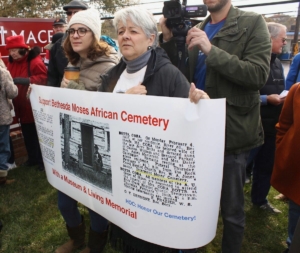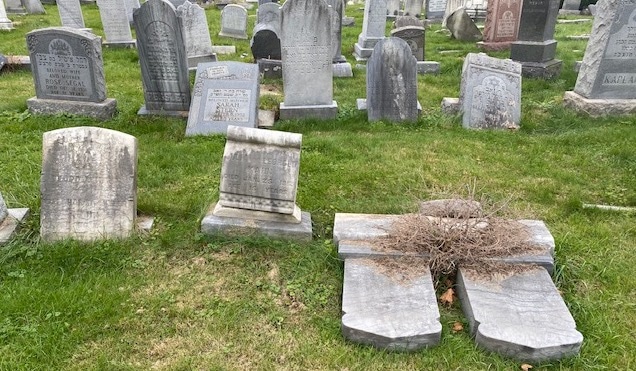Cemeteries as Storytellers
Cemeteries are storytellers of history. Tombstones remind the world we were here. Deeply rooted in Jewish Tradition is the preservation of personal legacy and honoring the dead. Yet, cemeteries around the globe and in our neighborhoods are not getting the attention that these holy places deserve.
In Parshat Beshalach of Exodus, we read about preserving the dignity of our ancestors. “Moses took with him the bones of Joseph, who had exacted an oath from the children of Israel, saying, “God will be sure to take notice of you: then you shall carry up my bones from here with you.” There were many items Moses needed to take for the journey into the wilderness: food, tent material, clothing, animals . . . Yet, Moses retrieved Joseph’s bones and carried them, as important as any other object. Joseph wanted to be buried in the land of his ancestors. Decades later, Joshua laid Joseph’s bones to rest in Shechem.
Moses and Joshua exhibited extraordinary consideration for their ancestor, Joseph. These vignettes in Torah underscore our tradition of giving honor to the deceased. Today we honor the deceased with prompt burial and memorial services. However, the only tangible, lasting tribute to each person is the grave and their tombstone.
Jewish communities in America are preserving their cemeteries. Jewish Federations in various cities like Cleveland and Philadelphia have raised funds to restore Jewish cemeteries. An organization named Avoteynu (“our ancestors”), is repairing Jewish cemeteries throughout Europe, largely destroyed in World War Two or deteriorating due to neglect. The European Jewish Cemeteries Initiative created by the European Union, the Committee for the Preservation of Jewish Cemeteries in Europe, and the Heritage Foundation for Preservation of Jewish Cemeteries are some of the prominent groups working to save these testaments to Jewish life in Europe.
Torah and tradition teach us to care for these holy places. When cemeteries are attacked or destroyed, we are shaken by a phenomenon called “root shock.” Cemeteries are a link to our past and a testament to the history of living communities. The destruction of a tombstone or gravesite is a root shock that deeply disturbs our footing.
Similarly, other communities have experienced the same affronts to holy places. For example, here in Bethesda, the Moses Cemetery is  one of the last surviving remnants of a historic Black community that once included a church, a school, and several dozen homes. The Moses cemetery hosts about 500 graves of former slaves and sharecroppers. Many were displaced from homes in the District of Columbia and pushed into adjoining farmlands in Maryland, along River Road. Montgomery county now owns this land. The Housing Opportunities Commission is selling the land to a private developer. The Bethesda African Cemetery coalition sued the County to protect the Moses Cemetery development.
one of the last surviving remnants of a historic Black community that once included a church, a school, and several dozen homes. The Moses cemetery hosts about 500 graves of former slaves and sharecroppers. Many were displaced from homes in the District of Columbia and pushed into adjoining farmlands in Maryland, along River Road. Montgomery county now owns this land. The Housing Opportunities Commission is selling the land to a private developer. The Bethesda African Cemetery coalition sued the County to protect the Moses Cemetery development.
As Jews, we understand the need to honor our dead, preserve our legacy, and maintain the sanctity of grave sites. I hope we extend our tradition to supporting our neighbors who have suffered the loss of their historic cemetery and are coping with the root shock of displacement and disrespect for their ancestors.
Rabbi Evan J. Krame






 Evan J. Krame was ordained as a rabbi by the
Evan J. Krame was ordained as a rabbi by the